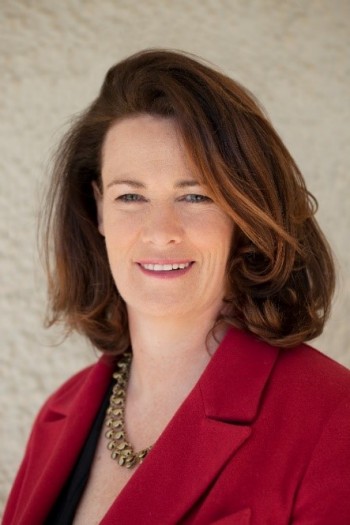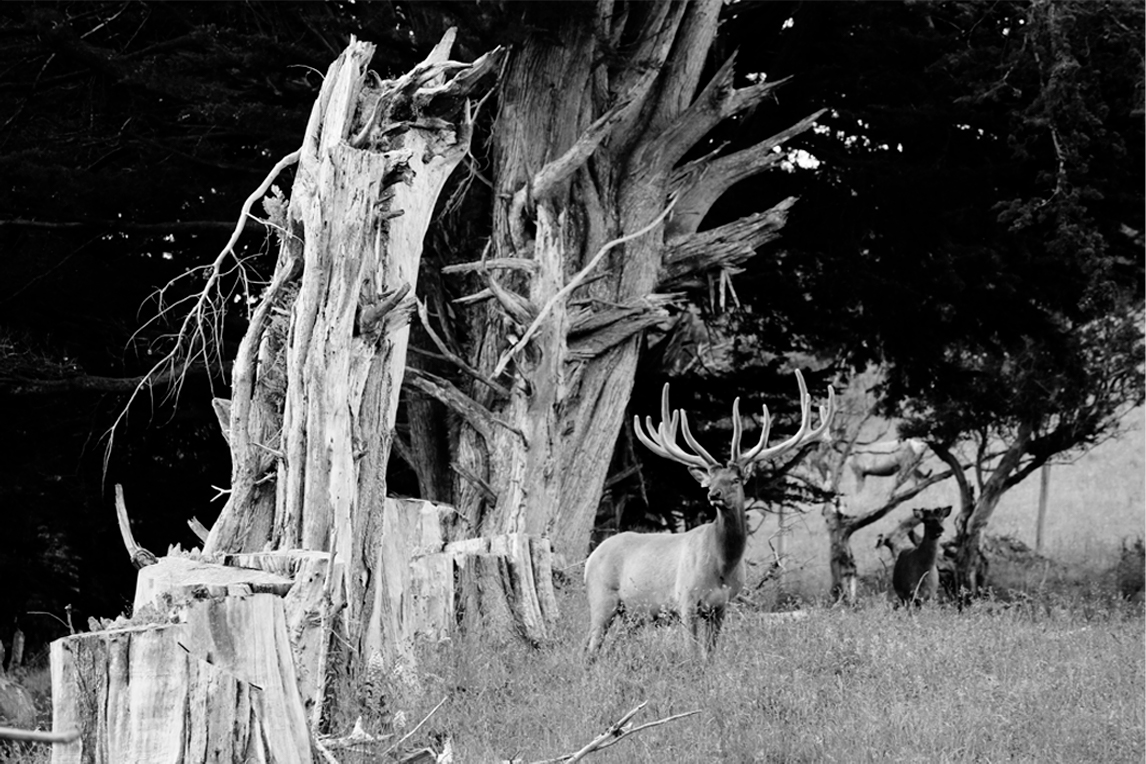Jul 16, 2021

The NZ farmed deer industry is renowned for its innovation and the quality and diversity of its products. Deer Industry New Zealand (DINZ) works with others to enhance this reputation and to promote the interests of all industry participants.
 On Wednesday, the government released discussion documents on proposals for freshwater farm plans. DINZ environmental stewardship manager Lindsay Fung says he is pleased to see that several DINZ requests to government have been included. These include:
On Wednesday, the government released discussion documents on proposals for freshwater farm plans. DINZ environmental stewardship manager Lindsay Fung says he is pleased to see that several DINZ requests to government have been included. These include:
- A new, more accurate approach to farm mapping that takes account of actual slope, not averages across the entire property
- No requirement for stock exclusion from waterways on slopes above 5 degrees
- No requirement for stock exclusion on land 500 meters above sea level.
“However we will continue to strongly insist that there must be provisions for the most extensive properties. Also there must be provisions for exemptions for low intensity properties, or in situations where fencing is impractical or unfeasible and where water quality can be managed well via other means,” Fung says.
Submissions are open until 12 September. DINZ and the NZDFA will be making the case for the deer sector, but encourage deer farmers to submit on their own account.
Central Otago deer farmer and veterinarian Amanda (Mandy) Bell has been selected as a producer member of the Deer Industry NZ board by the NZDFA Selection & Appointment Panel (SAP). She replaces William Oliver who stepped down from the board after six years.

SAP chair Paddy Boyd said all five candidates for the position were talented individuals who interviewed very well, but “Bell was the right person at the right time”. The other four candidates will have their time and he encourages them to apply for future vacancies.
The selection process is facilitated by the Institute of Directors and involves the SAP doing due diligence on all candidates, as well as face-to-face interviews. The DINZ board advises the SAP of the qualities they are seeking in a candidate to ensure there is a good balance of skills and perspectives around the board table, but the selection is for the SAP alone to make.
Bell (pictured) has had a lifelong interest in deer, attending NZ’s first-ever live deer auction as a child and working with fallow as a vet student. She and husband Jerry (who previously has served as a DINZ board member) are based at Criffel Station, Wanaka. Their business interests include deer farming and tourism.
Bell helped establish Johne’s Management Ltd (now DeerPRO), helped drive the establishment of the Passion 2 Profit (P2P) programme and was the founding chair of the P2P advisory group. She is involved in a number of land and water sustainability programmes in her capacity as chair of Wai Wanaka and is an advisor to the Our Land & Water National Science Challenge.
Check your gas bottles or charcoal supply, Saturday 7 August is going to be our first NZ Venison BBQ day. Hunter McGregor, who sells Mountain River venison in China, came up with the idea as a way to support sales during the Northern Hemisphere summer.
 DINZ venison marketing manager Nick Taylor says importers in a number of markets are quite excited: “Our chef in Germany is brainstorming ideas with them at the moment. One activity is a restaurant in Berlin that is partnering with the NZ Embassy in Germany to host a pop-up BBQ.”
DINZ venison marketing manager Nick Taylor says importers in a number of markets are quite excited: “Our chef in Germany is brainstorming ideas with them at the moment. One activity is a restaurant in Berlin that is partnering with the NZ Embassy in Germany to host a pop-up BBQ.”
In New Zealand the focus will be on activities through social media – Instagram and Facebook – with prizes for those who get involved and share their BBQ through social media.
“We want to encourage consumers to share photos and videos of their venison BBQs – to create a buzz about our wonderful meat. The more people involved the better, so we strongly encourage everyone in the industry to join the fun and share.
“Be creative. Think about what you can do with burgers, sausages, meatballs, steaks, medallions, stirfry, shanks, roasts – venison is so versatile. Challenge your city friends to get involved!”
Make sure you are following New Zealand Venison on social media to get all the info and see all the great events:
Facebook: facebook.com/NewZealandVenison
Instagram: @nzvenison
 A new clinical trial aims to provide scientific evidence of the role of Pāmu deer milk in supporting a healthy lifestyle and improved nutrition in the over-65s. Professor Marlena Kruger at Massey University has been awarded $244,000 for a project to be carried out in conjunction with Pāmu, the former Landcorp.
A new clinical trial aims to provide scientific evidence of the role of Pāmu deer milk in supporting a healthy lifestyle and improved nutrition in the over-65s. Professor Marlena Kruger at Massey University has been awarded $244,000 for a project to be carried out in conjunction with Pāmu, the former Landcorp.
Deer milk is a natural source of concentrated nutrition. It has significantly higher protein content than cow’s milk and has a different protein/fat ratio. It naturally contains vitamins and minerals that support skeletal and immune health, with additional minor components that have anti-inflammatory effects.
Pāmu are focusing on China and South East Asian markets for product commercialisation, hence the desire to target an Asian population in the trial. Pāmu deer milk is sourced through the partnership with Peter & Sharon McIntyre and a Pāmu pilot scale farm in the Central Plateau.
 About two-thirds of deer farms are thought to have a Farm Environment Plan (FEP) and about half of the attendees at the 2021 Deer Industry Conference said they knew their greenhouse gas (GHG) numbers. FEPs are now compulsory in some regions and will be required for all farmers nation-wide next year. By the end of 2022, all farmers will need to know their GHG emission numbers and have a plan to manage their emissions.
About two-thirds of deer farms are thought to have a Farm Environment Plan (FEP) and about half of the attendees at the 2021 Deer Industry Conference said they knew their greenhouse gas (GHG) numbers. FEPs are now compulsory in some regions and will be required for all farmers nation-wide next year. By the end of 2022, all farmers will need to know their GHG emission numbers and have a plan to manage their emissions.
DINZ is encouraging all deer farmers who need assistance with drawing up a FEP or calculating their GHG numbers to join a Deer Industry Environment Group (DIEG). At present there are 15 groups involving 125 farmers operating and we are keen to form more where they are needed.
The farmer members of the groups support each other when putting their FEPs together. DINZ also helps members calculate their GHG numbers.
DINZ has engaged Megan McCall as a part time environment project manager for these groups. Contact her to find out about the DIEGs operating in your area.
If you haven’t done a GHG calculation yet – try out the B+LNZ online calculator here>>
B+LNZ’s GHG Calculator | Beef + Lamb New Zealand (beeflambnz.com)
Contact: Tel 027 207 6074 or email mmccall@abacusbio.co.nz
 If a farm isn’t registered on VelTrak yet, time is running out. All farms producing velvet for human consumption must be registered with VelTrak in order to sell velvet, starting this season. All sticks that can retain a tag must also be tagged with the new black UHF RFID tags that can only be obtained only through a deer vet using the VelTrak system.
If a farm isn’t registered on VelTrak yet, time is running out. All farms producing velvet for human consumption must be registered with VelTrak in order to sell velvet, starting this season. All sticks that can retain a tag must also be tagged with the new black UHF RFID tags that can only be obtained only through a deer vet using the VelTrak system.
When registering, don’t forget to select your veterinary clinic under ‘Manage Business Details’ to ensure you can get tags when the time comes for ordering. The tags will also come with an invoice as DINZ is passing on some of the cost of the tags to vets and is recommending a retail price of 49 cents a tag.
DINZ QA manager John Tacon says VelTrak has been developed as a unique way to meet the traceability requirements for food products set by MPI and overseas regulators.
“In this, our first season, our sole focus to provide proof to regulators and customers that the velvet they are importing comes from New Zealand and complies with our stringent animal welfare and food safety requirements. In future seasons, there is a potential to use the tags and the VelTrak system to creatively promote NZ velvet in the marketplace.”
Tacon urges farms that have not registered to do so now by clicking on the registration link in the VelTrak email invitation that has been sent to all known deer farms. “It’s important to complete all parts of the registration; to check that your business details are correct and to select your vet clinic.”
Any questions? www.deernz.org/veltrak
To register: Click on the link in the email sent to all deer farms
Need help? Or no email? Ring the DINZ office
To log-in to VelTrak: www.veltrak.velvet.org.nz
In order to reduce GHG emissions on farms, we will all need to get our heads around nitrous oxide (N2O). You can’t see it, you can’t smell it, but it accounts for 12% of NZ’s GHG emissions and 21% of those from agriculture. It is long-lived, with a greenhouse warming potential (GWP) 265–298 times that of CO2 over a 100-year timescale.
 Under the Climate Change Response (Zero Carbon) Amendment Act, the government aims to reduce long-lived greenhouse gas emissions (carbon dioxide and nitrous oxide) to net zero by 2050. Apart from planting more native and exotic trees, just how farmers and growers might achieve that, is unknown. Reducing N fertiliser applications will help, as will any management technique that reduces nitrogen production on a farm, but getting to zero is going to require new technology.
Under the Climate Change Response (Zero Carbon) Amendment Act, the government aims to reduce long-lived greenhouse gas emissions (carbon dioxide and nitrous oxide) to net zero by 2050. Apart from planting more native and exotic trees, just how farmers and growers might achieve that, is unknown. Reducing N fertiliser applications will help, as will any management technique that reduces nitrogen production on a farm, but getting to zero is going to require new technology.
To learn about N2O and other climate-related matters the government funds the NZ Greenhouse Gas Research Centre. The centre produces information on GHG emissions and how they may be reduced. They have recently produced some interesting information on reducing nitrous oxide emissions, here >>
DINZ invests in ruminant GHG research alongside Beef+Lamb NZ and Dairy NZ.
Land-based colleges in the UK have lost millions in commercial income as a result of Covid lock-downs. About a third of Wiltshire College’s revenue usually comes from commercial activities.
“We have a small deer farm where we produce venison, and that’s tailored for restaurants, so that market completely dried up,” Ian Revill, the assistant principal.
Rangataiki Station farm business manager James Van Bohemen has taken out the 2021 Rabobank Management Project Award, a business management prize for up-and-coming farmers. He’s shown here receiving the award from Rabobank NZ CEO Todd Charteris.

Selected from graduates of the 2019 Rabobank Farm Managers Programme (FMP), Van Bohemen was recognised for his business management project, which demonstrated how he had effectively utilised the lessons from the programme in his role as the farm business manager at Rangataiki Station.
The station is located near Taupo and is the largest farm operated by Pamu (Landcorp). The operation totals 8317 ha (effective) and employs 24 staff across a range of enterprises including deer (breeding and finishing), sheep (breeding and finishing), beef (breeding and finishing) and an intensive bull beef system.
Jake Jarman, an ANZ Bank relationship associate has won the FMG Young Farmer of the Year 2021 on his first attempt. He beat six other competitors in the grand final, held in Christchurch from July 1-3.

DINZ project manager Rob Aloe says it was a thrill for the DINZ team to see a participant in the Big Deer Tour achieve success in their career pathway. Originally from the Taranaki, Jarman graduated from Lincoln with a B AgComm in 2018 and graduated Master of Science (Agricultural Science) at Massey earlier this year.
“Jake has kept in touch with DINZ since being on the Big Deer Tour in 2018 so is a close ally of the deer industry. He has joined me since to promote the Tour at Massey.”
On the Big Deer Tour a small group of top university ag students is shown the deer industry from top to bottom; seeing what makes the deer industry special and meeting professionals servicing the sector. Applications are called for in March each year and the tour happens in April.
The largest deer hunters’ group in Minnesota, USA, is pushing for deer farming to be banned in the state to stop the spread of the Chronic Wasting Disease (CWD) from captive deer into the wild.
There are 259 farms running a total of 7677 whitetail deer, mule deer, elk and exotic deer in Minnesota, one of 26 states in the US and 3 provinces in Canada where CWD has been spreading through farmed and wild herds.
CWD is an always-fatal neurological disease that effects all deer species. It is caused by prions, abnormal proteins that self-replicate within the brains of infected animals. It is similar to scrapie in sheep and mad cow disease in cattle. There are no vaccines or treatments.
CWD has never occurred in New Zealand. If it arrived it could be devastating for both deer farming and hunting. Prions are highly resistant to disinfectants, heat or freezing and could be carried on hunting and camping gear. They also persist for a very long time in the environment.
DINZ science and policy manager Emil Murphy says Covid has put most tourism on hold, “but if you host visitors on your farm or trophy block (or have farm staff returning home) after hunting or tramping in North America or other areas where CWD is present, you should think about how you manage the risk. For example, get them to leave potentially contaminated gear behind and use new gear, or gear you provide.”

Whitetail fawns at a deer feeder in Minnesota. Photo courtesy Steve Kuchera, Forum News Service

